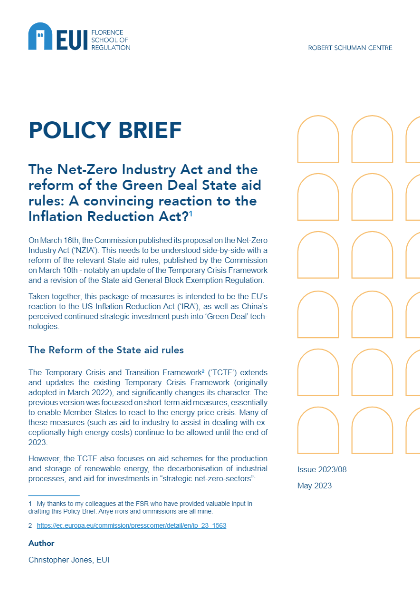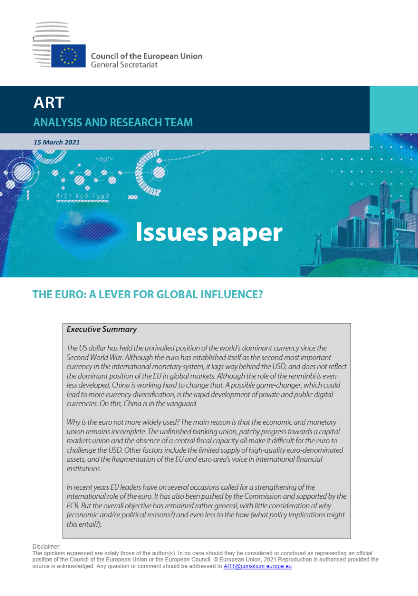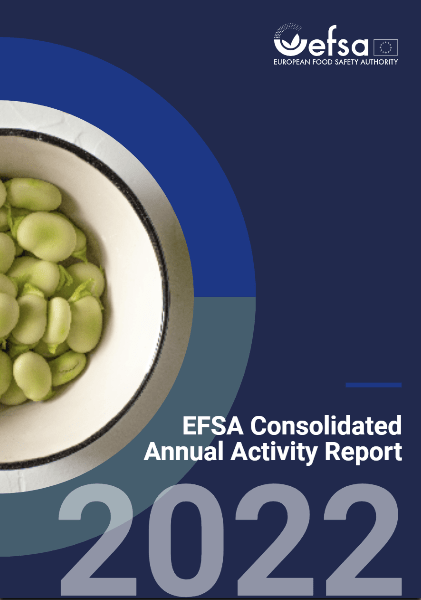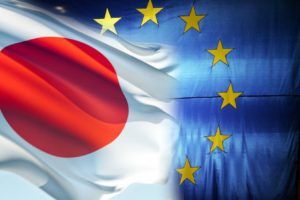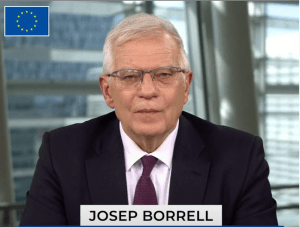
CDE Almería - Centro de Documentación Europea - Universidad de Almería
Centro de Documentación Europea de la Universidad de Almería
Cultura y Educación
Documentación comunitaria en las áreas de Cooperación Internacional Universitaria, Digitalización en el Ámbito Educativo, Espacio Europeo de Educación Superior y Patrimonio Cultural Europeo. Contiene también las últimas noticias, mediateca y boletines relacionados con la materia.
Estás aquí: Fondo Digital CDE > Cultura y Educación

On March 16th, the Commission published its proposal on the Net-Zero Industry Act (‘NZIA’). This needs to be understood side-by-side with a reform of the relevant State aid rules, published by the Commission on March 10th – notably an update of the Temporary Crisis Framework and a revision of the State aid General Block Exemption Regulation. Taken together, this package of measures is intended to be the EU’s reaction to the US Inflation Reduction Act (‘IRA’), as well as China’s perceived continued strategic investment push into ‘Green Deal’ technologies.
[Leer Más]The US dollar has held the unrivalled position of the world’s dominant currency since the Second World War. Although the euro has established itself as the second most important currency in the international monetary system, it lags way behind the USD, and does not reflect the dominant position of the EU in global markets. Although the role of the renminbi is even less developed, China is working hard to change that. A possible game-changer, which could lead to more currency diversification, is the rapid development of private and public digital currencies. On this, China is in the vanguard. Why is the euro not more widely used? The main reason is that the economic and monetary union remains incomplete. The unfinished banking union, patchy progress towards a capital markets union and the absence of a central fiscal capacity all make it difficult for the euro to challenge the USD. Other factors include the limited supply of high-quality euro-denominated assets, and the fragmentation of the EU and euro area’s voice in international financial institutions. In recent years EU leaders have on several occasions called for a strengthening of the international role of the euro. It has also been pushed by the Commission and supported by the ECB. But the overall objective has remained rather general, with little consideration of why (economic and/or political reasons?) and even less to the how (what policy implications might this entail?).
[Leer Más]This report provides an overview of the key activities and achievements of EFSA over the past year, as well as the challenges the Authority has faced in fulfilling its mission to help ensure food safety in the EU and beyond. Marking EFSA’s 20th anniversary, 2022 also saw some new beginnings. With the easing of the SARS-CoV-2 pandemic, staff gradually returned to the office, and measures were adopted to support hybrid working. Based on the lessons learnt during the previous two years of mostly remote operations, the Authority has assessed how this experience can be used to make EFSA’s ways of working more fit for future challenges.
[Leer Más]- « Anterior
- 1
- …
- 31
- 32
- 33
- 34
- 35
- …
- 5.922
- Siguiente »
Noticias relacionadas
Boletines CDE
- BOLETÍN INFORMATIVO EDUCACIÓN Y CULTURA EN LA UE (Nº9)
- BOLETÍN INFORMATIVO EDUCACIÓN Y CULTURA EN LA UE (Nº8)
- BOLETÍN INFORMATIVO EDUCACIÓN Y CULTURA EN LA UE (Nº7)
- BOLETÍN INFORMATIVO EDUCACIÓN Y CULTURA EN LA UE (Nº6)
- BOLETÍN INFORMATIVO EDUCACIÓN Y CULTURA EN LA UE (Nº5)
- BOLETÍN INFORMATIVO EDUCACIÓN Y CULTURA EN LA UE (Nº4)
- BOLETÍN INFORMATIVO EDUCACIÓN Y CULTURA EN LA UE(Nº 3)
- BOLETÍN INFORMATIVO EDUCACIÓN Y CULTURA EN LA UE (Nº 2)
- BOLETÍN INFORMATIVO EDUCACIÓN Y CULTURA EN LA UE (Nº1)
